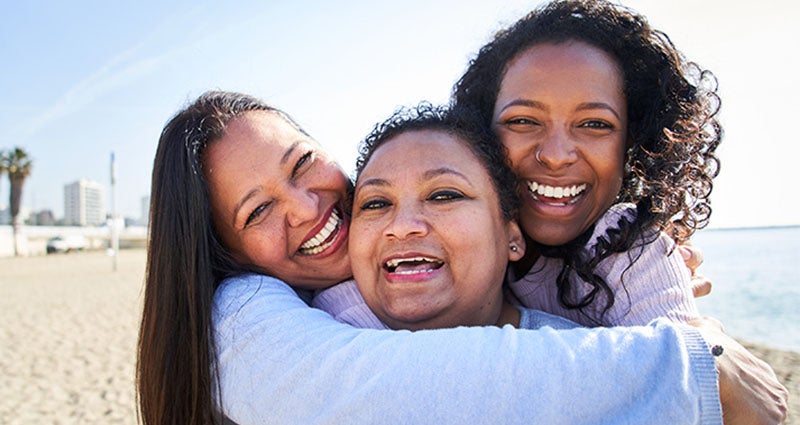Stay connected for better health

Humans are social creatures. We need social relationships and communities to grow, to thrive and to stay physically and emotionally healthy.1 Even the most introverted people need interaction with others from time to time.
Social isolation and loneliness can result in psychological and physical disintegration. Adults who are lonely or socially isolated are at higher risks for:
- High blood pressure
- Heart disease
- Obesity
- Anxiety and depression
- Cognitive decline and more2
Older adults are at a higher risk for isolation. Reasons why include limited mobility, hearing, vision and memory loss. The key is to connect with people in a healthy way.
Connect with yourself
Knowing yourself is the first step in finding and establishing new social connections. Ask yourself:
- How much time do you prefer to spend with others?
- Do you prefer to connect with people in person? Via video chats or on the phone? Are text messages enough for you? Do you like a combo of them all?
- What kinds of interactions feel best to you? Do you prefer casual chitchat? Deeper conversations? Do you just want to be near another person even if you’re not talking?
- Are there people in your life who help you grow? Are there people in your life you think might be holding you back?
Connect with others
Armed with the knowledge of how you like to socialize, create a plan for yourself. Don’t be afraid to speak up. If you find yourself in a social situation that makes you uncomfortable, say so. Communication is key. Here are some ideas to connect with others:
At work
- Start a lunch group.
- Schedule virtual coffee chats with coworkers online.
- Create a walking group.
- Give praise freely and often! Tell your colleagues what they do that inspires you or makes you grateful.
At home
- Eat dinner with your family. Share about your day.
- Plan a family trip.
- Schedule a recurring date night with your partner.
- Have a screen-free night to do something creative together.
- Tell your kids and/or partner why you’re proud of them.
With other loved ones
- Schedule a weekly or monthly phone date with a friend.
- Find a workout buddy to enjoy time together while getting some physical activity.
- Tell a good friend why you value their friendship—it can mean a lot!
There’s no right or wrong way to find a social balance.
Be respectful of your comfort levels and those of others. In turn, you may connect with them and find the community and companionship you need.
Connecting with yourself and how you feel physically and mentally is a great step toward health. Mindfulness can help.
1https://www.psychologytoday.com/us/basics/social-life
2https://www.nia.nih.gov/health/loneliness-and-social-isolation-tips-staying-connected
/content/tdh-www/us/en/home/library/article/the-importance-of-social-wellness.html
Was this article helpful?
Don't wait! Unlock a healthy, happy new year, at no cost to you.
This content is not intended to be a substitute for professional medical advice, diagnosis or treatment. Always seek the advice of your physician or other qualified health provider with any questions you may have regarding a medical condition.
